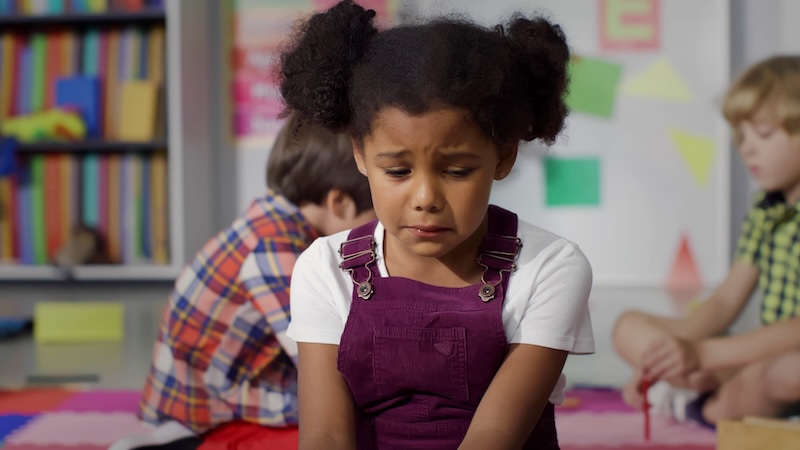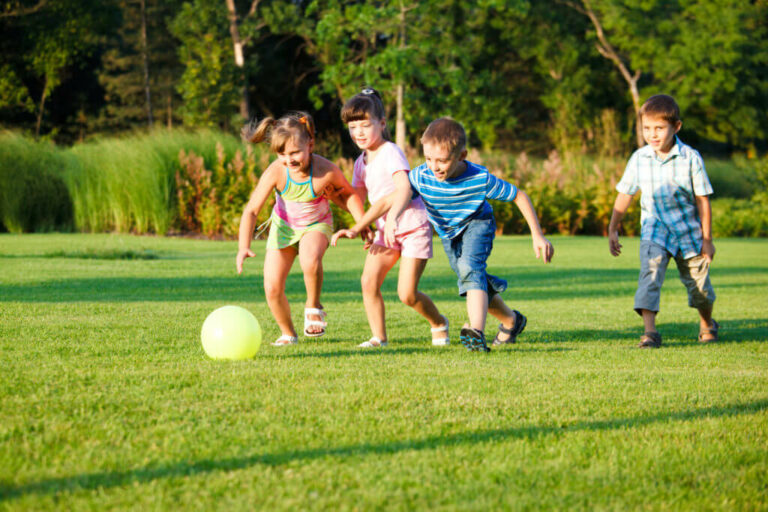Every parent has witnessed the moment when their sweet, smiling child suddenly erupts into tears, frustration, or anger that seems to come from nowhere. At Heritage Learning Center, we understand that these “big emotions” are not just normal—they’re actually crucial milestones in your child’s development. For over two decades, our early childhood educators have specialized in creating nurturing environments where children learn essential emotional regulation skills that serve them throughout their lives. Our team of early childhood teachers combine evidence-based approaches with genuine warmth and understanding, recognizing that each child’s emotional journey is unique. Whether your child is navigating their first separation anxiety, struggling with transitions, or experiencing the intense emotions that come with growing independence, our expertise can help transform these challenging moments into powerful learning opportunities.

Understanding Why Big Emotions Happen in Young Children
Children’s brains are not fully developed until around age 25, making emotional regulation particularly challenging for young ones. The emotional centers of a child’s brain develop much faster than the rational, thinking parts that help control those emotions. This means that when your three-year-old has a complete meltdown because their sandwich was cut into squares instead of triangles, they’re not being manipulative—they’re genuinely overwhelmed by feelings they don’t yet have the skills to manage.
Young children also lack the vocabulary to express what they’re feeling. When a toddler can’t find the words to say “I’m frustrated because I wanted to keep playing,” they might throw toys instead. Tantrums and aggression are especially common in young children because they are still learning language and how to use words to express their feelings. Understanding this developmental reality helps parents respond with patience rather than frustration when big emotions emerge.
Proven Techniques for Supporting Children Through Emotional Storms
The most effective approach to helping children with big emotions starts with your own emotional state. It’s not effective to try to reason with a child who’s dysregulated. When your child is in the midst of strong emotions, focus first on helping them feel safe and supported.
Label and Validate the Feeling: When your child expresses big emotions, begin by acknowledging and labeling the feeling. Use simple, clear language like “You’re feeling really angry that we have to leave the playground” or “I can see you’re sad about saying goodbye to Daddy.” This validation doesn’t mean you agree with their behavior, but it shows you understand their experience.
Stay Calm and Present: If we want our children to learn how to manage their emotions, we have to let them see us managing ours. Your calm presence becomes an anchor for your child during their emotional storm. Take deep breaths, speak in a gentle tone, and offer physical comfort if your child wants it.
Offer Simple Choices: Giving your child the opportunity to make a choice in a moment of intense emotion can redirect them to feeling some element of control. Even small choices like “Would you like to take deep breaths together or would you like a hug?” can help shift their focus from the overwhelming emotion to problem-solving.
Building Emotional Intelligence Through Daily Practice
Teaching children the words for emotions is important because, over time, it gives children the ability to talk about their feelings instead of acting them out. Start building your child’s emotional vocabulary during calm moments. Read books together that explore different feelings, point out emotions in everyday situations, and share your own feelings using age-appropriate language.
Create Emotion Learning Opportunities: Use puppets, dolls, or stuffed animals to act out common scenarios your child faces. Practice what to do when feeling frustrated, disappointed, or excited. These creative outlets give children healthy ways to express and process their emotions.
Develop Calming Strategies Together: Teach your child ways to calm down from strong emotions. This might be counting to 10 or taking 5 deep breaths. Practice these techniques when your child is calm so they become familiar tools they can access during difficult moments. Some children respond well to physical movement like jumping jacks, while others prefer quiet activities like looking at a favorite book.
Plan Ahead for Challenging Situations: Prepare children for potentially difficult situations by discussing what will happen and practicing strategies beforehand. This proactive approach builds confidence and reduces the intensity of future emotional responses.
Supporting Your Child’s Emotional Journey in Our Community
At Heritage Learning Center, we recognize that supporting children’s emotional development requires partnership between families and educators. Our experienced team understands the unique challenges that families face in our local community, from the fast-paced lifestyle that can create stress for both parents and children to the high expectations that can sometimes leave little room for emotional processing.
Model Emotional Awareness: Share your own emotions appropriately: “I’m feeling frustrated about the traffic, so I’m going to take some deep breaths to help myself stay calm.” This shows children that all people have big emotions and demonstrates healthy coping strategies.
Focus on Connection Over Correction: When children feel connected to their caregivers, they’re more likely to seek help managing difficult emotions rather than acting out. Prioritize understanding what your child needs in emotional moments before addressing behavior.
Celebrate Emotional Growth: Notice and acknowledge when your child uses words instead of actions, tries a calming strategy, or shows empathy toward others. These positive interactions reinforce the emotional skills you want to see more of.
Ready to give your child the emotional tools they need to thrive? Contact Heritage Learning Center today to learn more about our developmentally appropriate programs and discover how we can support your family’s journey toward emotional wellness and resilience!




